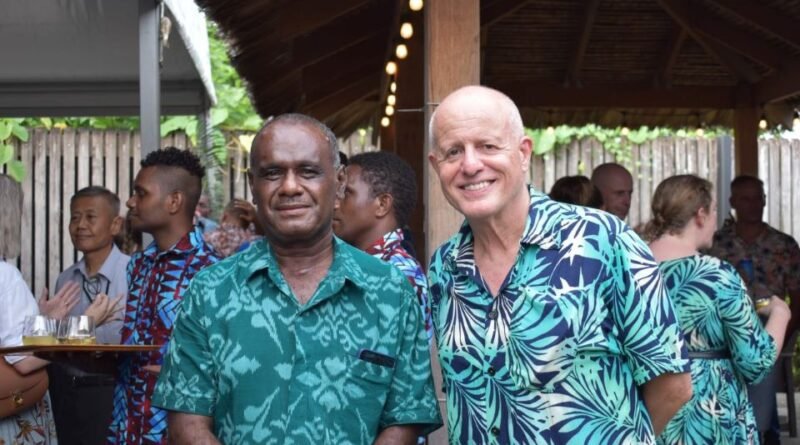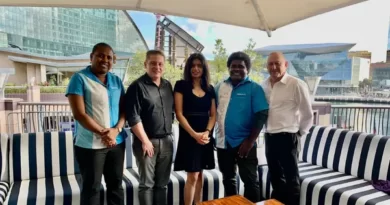New Zealand High Commissioner on the Tourism Potential of the Solomon Islands
BY CHRIS ALEX
NEW Zealand’s High Commissioner, Jonathan Schwass, emphasised the Solomon Islands’ untapped tourism potential, highlighting the country’s rich cultural diversity, natural environment, and history.
In an exclusive interview with TOURISM MEDIA, Jonathan Schwass noted the existing potential of the Solomon Islands as a tourism destination, citing the country’s rich heritage as making them an ideal destination for travellers.
The extraordinary cultural diversity of the Solomon Islands leaves a lasting impression on him.
“The cultural diversity of the Solomon Islands is extraordinary. There are so many peoples and so many languages here, all with their own oral histories and traditions passed down through the generations and all spread across nine unique provinces and something like 900 inhabited islands,” he explained.
However, he warned about the challenges ahead to protecting the country’s legacy while building a modern nation-state.
“The challenge is how to protect this unique heritage while building a modern nation-state. But Solomon Islanders are inventive and adaptable people, and I am sure they will find a way of forging a path that embraces modernity while at the same time safeguarding tradition,” he noted.
Schwass further acknowledged the hurdles that lie ahead.
“Tourism has terrific potential here, assuming the natural environment that people come to see can be sufficiently protected.
“But turning potential into bigger tourist numbers is going to be tricky because several factors have to come together: air connections with other countries and within the country will need to strengthen, more tourist-standard accommodation will be required, and—in my view, the biggest challenge of all—value for money for visitors will need to improve.
“At present it is expensive to holiday in the Solomon Islands, and that keeps away all but the most determined visitors.
“I can’t imagine that Solomon Islands would want mass tourism like in Bali, but if these challenges can be addressed to some extent, I think this country will be very attractive to independent-minded, fairly well-off tourists who want to see Solomon Islands for its nature, its culture, and its history and want more than just to flop on a warm beach,” he added.
What truly captivates Schwass is the cultural fabric woven into everyday life in the Solomon Islands. He marvels at the way families and communities support one another, a stark contrast to the struggles faced in New Zealand.
“Maybe this isn’t one of the more colourful Solomon Islands traditions, but I really like the way that families and communities here look after each other. In New Zealand, it’s common for parents to struggle to find childcare while they work or for older people to move into a care facility because there is no one to look after them.
“It seems like in Solomons everyone has an aunty or cousin who can mind the kids, and older people are just part of the family unit and are cared for in the home. That’s a very nice part of your culture,” he noted.
A defining moment in Schwass’s tenure in the country came during the 2012 Festival of Pacific Arts in Honiara.
“When I was posted in the Solomon Islands the first time, I was closely involved with the 2012 Festival of Pacific Arts, which was based in a specially built village out near what is now the Stadium area.
“The festival was a memorable event generally, but I will never forget going out to the seaside at Ranadi before dawn one morning to watch traditional sailing waka (ocean-going canoes) arrive from points of origin all around the Pacific, including Aotearoa New Zealand.
“Seeing them arrive out of the darkness and pull up on the beach with crews in the traditional dress of their homelands told a wonderful story about Pacific migration and the interconnectedness of Pacific peoples,” he recalled.
As the High Commissioner continues his work in the Solomon Islands, he noted his commitment to advocate for sustainable tourism practices in the country
“The goal is to create a tourism sector that not only brings economic benefits but also enriches the lives of local communities,” he said.



